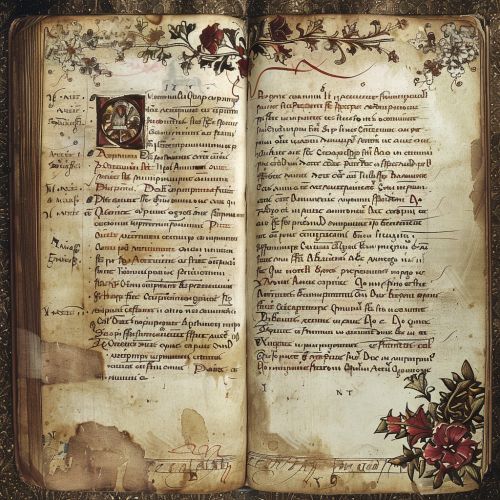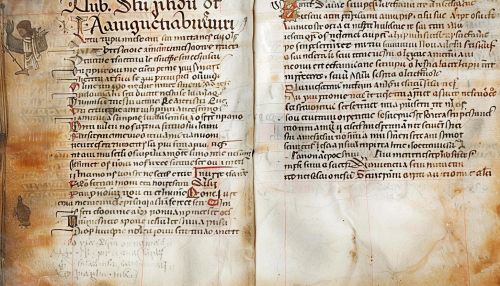Rule of Saint Augustine
Origins
The Rule of Saint Augustine, often referred to as the Augustinian Rule, is a monastic rule of life that has been followed by various religious orders since the 5th century. It was written by Saint Augustine, an influential theologian and philosopher of the early Christian church. The rule is notable for its simplicity, practicality, and emphasis on community life, and it has had a profound influence on the development of monasticism in the Western Christian tradition.
Content and Themes
The Rule of Saint Augustine is relatively short, consisting of only eight chapters, but it covers a wide range of topics related to monastic life. The rule emphasizes the importance of living in community, prayer, work, and ascetic practices. It also includes instructions on the election and duties of the abbot, the observance of the Divine Office, the care of the sick, and the reception of guests.
One of the central themes of the Rule is the idea of living in unity and love. Augustine writes, "Above all, live together in harmony, being of one mind and one heart on the way to God." This emphasis on community life and mutual support is one of the distinguishing features of the Rule.
Influence and Legacy
The Rule of Saint Augustine has had a significant impact on the development of monasticism in the Western Christian tradition. It was adopted by various religious orders, including the Canons Regular, the Dominicans, and the Augustinians. These orders have played a crucial role in the history of the Church, contributing to its spiritual, intellectual, and cultural life.
The Rule continues to be followed by many religious communities today, and it has also influenced modern forms of Christian community life. Its emphasis on community, prayer, and service resonates with many contemporary Christians, and it offers a model of Christian living that is both challenging and inspiring.
See Also


